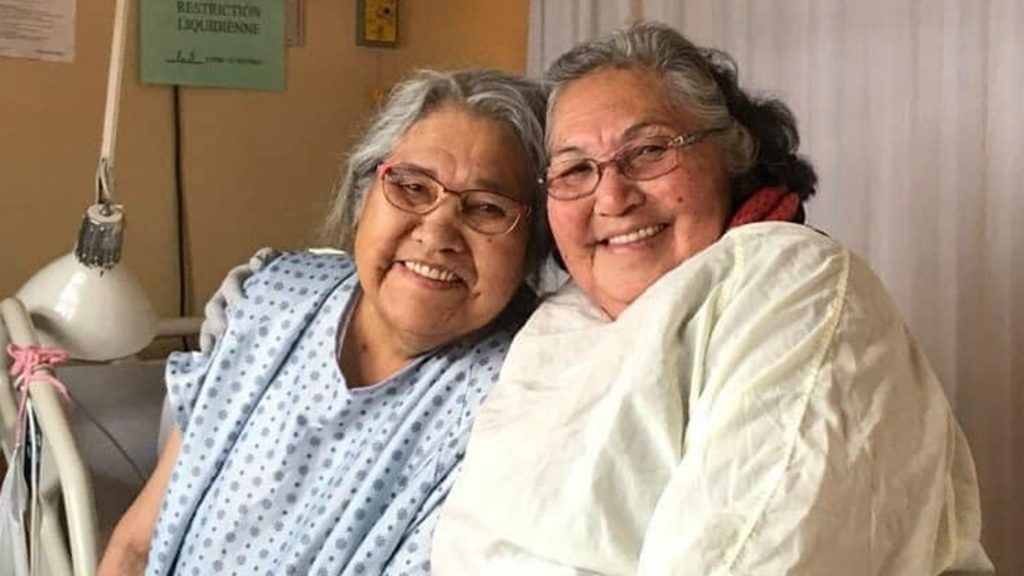
The COVID-19 outbreak ravaging Quebec’s long-term care facilities claimed the life of a respected Cree elder earlier this week.
Emma Trapper, originally from Mistissini, passed away in a long-term care facility in Montreal on Monday – becoming the first Indigenous person to succumb to the virus in Quebec.
“Mrs. Emma Trapper was one of us, and we can now only join the family in mourning her passing,” Cree Grand Chief Abel Bosum said in a statement posted to Facebook on Tuesday.
Trapper is remembered as a mother, grandmother, and great-grandmother, as a well as a “religious woman who had a contagious laughter when she was filled with the Holy Spirit,” according to Bosum’s post.
“It was our deepest hope that our Cree Nation would be spared the worst consequences of this virus, and all the measures that we have put into place were designed to prevent that occurrence,” Bosum wrote. “Unfortunately, and despite our best efforts, we have lost a dear elder.”
“It is only a small comfort to know that it is precisely in those long-term facilities that the majority of COVID-19 tragedies have been experienced,” he added.
On Monday, provincial authorities announced that for humanitarian reasons, families would now be permitted to visit those in palliative care, and caregivers’ access to long-term care homes would become the rule rather than the exception.
Quebec is still grappling with a shortage of employees in the health sector, with 11,200 missing from the frontlines because they are infected with COVID-19 or reluctant to return to work.
A number of proposed class-action lawsuits also allege negligence on the part of governments or nursing home operators in their handling of the virus.
The son of a 94-year-old woman who died of COVID-19 at one of the province’s hardest-hit facilities filed a class-action application against the government-run CSHLD Ste. Dorothee – where over 60 residents have died.
(Emma Trapper holding a pair of snowshoes. Photo: Grand Chief Abel Bosum/Facebook)
Three professional orders in Quebec have said they will hold a joint investigation into the situation at seniors’ homes and long-term care centres since the COVID-19 pandemic struck.
Although caregivers were told they’d be allowed to return in mid-April, Premier Francois Legault said the province found that many residences were continuing to deny their presence – sometimes for logistical reasons – so it would be up to homes to justify why they aren’t accepting them.
Speaking Tuesday, Legault called on those workers who’ve completed their 14-day quarantine – about one-third of those missing in action – to return to work.
Meanwhile, Quebec announced 118 new COVID-19 deaths compared with the prior day, for a total of 2,398.
The province also recorded another 794 positive cases of COVID-19, for a total of 33,417 confirmed cases.
Legault also confirmed he’d asked that the numbers relating to long-term care homes be removed from the government’s website because of errors.
He said 306 long-term and seniors’ residences in the province have at least one COVID-19 case, with 4,804 residents infected.
The Cree Health Board issued a statement on Facebook to offer prayers and condolences to the Trapper family – but also to warn about the potential misinformation being reported on Quebec’s website.
Despite conducting over 300 tests for the virus across Eeyou Istchee, only ten cases of COVID-19 were reported in Cree communities, according to the health board. Four people have recovered, while six cases remain active.
“It is important to understand that there are sometimes discrepancies on how the Government of Quebec and the Cree Board of Health report cases,” the statement reads.
“At times, Quebec will place an artificially high number for Eeyou Istchee because they will include Cree patients who have contracted COVID-19 in long-term care facilities in the South.”
They advise the population to continue “exercising caution” on where they get their information.
Bosum says the Cree Nation must commit to maintaining public health measures, like social distancing, to limit further spread of COVID-19 – an assertion seconded by the health board.
“People must remember that commitment to physical distancing and the very challenging precautionary measures that are in place is a reflection of our commitment to the vulnerable members of our community and our elders, our most cherished resource for our culture, language and identity,” their statement reads.
With files from The Canadian Press











